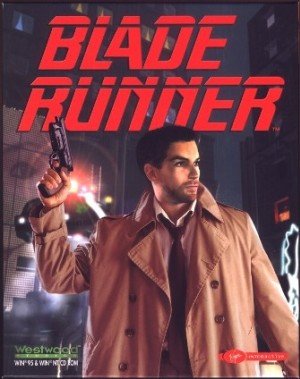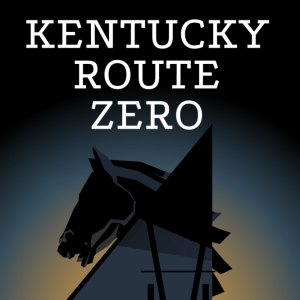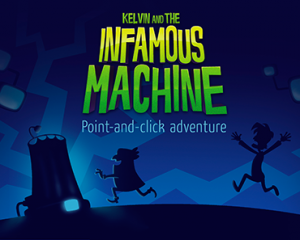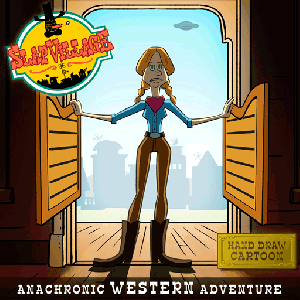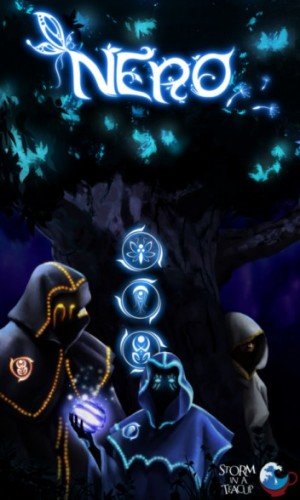David Leary – Blade Runner interview
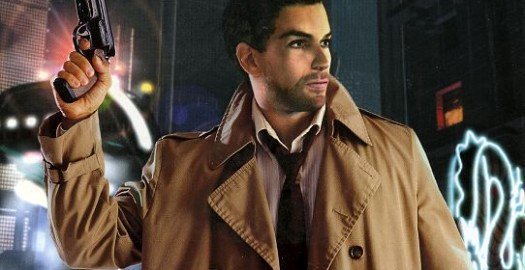
Can you believe it's been 20 years since Westwood Studios released their magnificent Blade Runner adventure? While a new Blade Runner movie, starring Ryan Gosling and Harrison Ford, is expected to arrive in cinemas around the globe in October, unfortunately a game sequel is nowhere in sight. Nevertheless, the 20th anniversary and an upcoming new film are great reasons to spend some time looking back on Westwood's remarkable adventure. I was able to get in touch with the game's co-writer/designer David Leary on Skype to discuss the beloved classic and its intense development process. Read on as Leary, whose design credits also include popular non-adventures such as Command & Conquer: Tiberian Sun, Age of Empires III, and Halo Wars, takes a trip down memory lane with me, shining an inside light on Westwood's highly ambitious replicant-chasing adventure.
Ingmar Böke: Welcome, David! As a Blade Runner fan, it's a real treat to welcome you to Adventure Gamers! What was your position at Westwood Studios by the time you joined the development team of Blade Runner?
 |
David Leary |
David Leary: Thank you! I was actually hired on to work on the Blade Runner game; that was my first job at Westwood. I was very young, and I had not been in the industry very long. They were looking for a game designer because what they had on the table was the license, sort of a linear script that had been written by David Yorkin, they had a bunch of fantastic concept art, the beginning of an engine, and they had a fairly talented team of engineers that had worked on the Kyrandia series. What they didn't have was a game designer, and they also needed someone with some background in writing who would help to flesh out that linear script into something that would actually be not quite so linear.
I happened to – luckily – fill both those requirements, so they hired me on to do that work fairly early in the process. I think they were only four or five months into their initial prototype when I joined on. That's how my first big lead project in the industry landed on my lap (laughs). I felt very fortunate to be that young and getting to work on something that big. I've always been a fan of Blade Runner, so that was pretty exciting.
Ingmar: So you were already a fan before you started working on the game. Please talk about that a little more.
David: Yeah, I was a fan of both: the movie and the book [Do Androids Dream of Electric Sheep?]. A lot of Philip K. Dick's other work as well. I'm sure you've read the book. They're (the movie and the book) very different pieces of art, but I think they each bring something unique to the table. You know, the movie in terms of its visuals, and the world it presented. It was very ground-breaking stuff at the time when that movie came out, and I think that vision has definitely carried forward to today. I mean, we're just seeing how influential it's been on things that came after it. It was certainly influential on me when I was young.
Ingmar: Same here! Speaking of the book, I noticed the game played with a few elements that were in the book but not in the movie. The fake police station, for example. What was the idea behind that approach?
David: We definitely drew influences from the book. We had to be a little careful, you know, because we didn't actually have the license to the book, only to the movie and the work. But there were areas that I felt that we could bring in that influence, and I'm glad that you picked up on that because we tried to give a nod to the work there. It was an important thing to us to bring some of that stuff in where we could.
Ingmar: Blade Runner was a unique game in several ways. Please describe the overall approach that Westwood had in mind for this ambitious project.
David: Yeah, I think they certainly wanted to bring in as much of the cinematic experience as they could. People talk about cinematic experiences in games these days, and of course it's a lot easier to get closer to that today than it was back then. I think they – within the limits of the technology at the time – wanted to bring that feel of the movie to the game as much as they could. That involved working really closely with the Blade Runner Partnership who owned the property, making sure that we hit all the right notes, while at the same time creating something a little more unique, explore some spaces of the world that had not been explored in the movie. I think those were all pretty high-level goals when the project was first initiated. One of the other things that I remember we talked a lot about at the time was how many movie games had been made that just weren't very good games. So our goal was not only that we did justice to the original movie, but also made sure that we put a game in there as well and not just have it be some cheap license thing.
Ingmar: How much freedom did you and David Yorkin have as writers – especially when it came to the input of the Blade Runner Partnership?
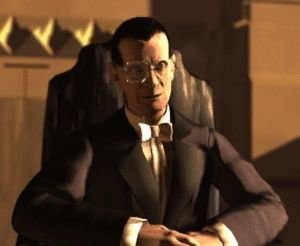 |
Extra care had to be taken with characters from the movie, like Dr. Eldon Tyrell |
David: We definitely had to work within some constraints. I felt like when we were working on individual scenes and individual game elements, we had a lot of freedom. We had to be particularly careful whenever we brought in characters that were from the actual movie. We were fortunate to be able to get a lot of voice actors to do a little work for us, but we had to be very careful with how we'd use them – both because we didn't want to mess with the integrity of the original movie, and also just because incorporating them into our story was going to be a challenge to begin with. I think sometimes those strains show a little bit in some of the scenes, and I wish that we could have served those characters a little better in some cases. In retrospect, we probably pushed too hard to try to bring in some of those characters when we didn't neccessarily need to. That was certainly one of the challenges that we faced, but in terms of the freedom we had to develop the game, I think that the Blade Runner Partnership was always a really good partner.
Ingmar: The plot of the game took place parallel to the events of the movie. In fact, there were several hints in the game, some of them well hidden, that referred to the investigations of Harrison Ford's character Rick Deckard. How was the idea of that parallel storyline born?
David: You know, that was something that we talked about a lot, and when we settled on that it just felt like such a breakthrough. I think that having that parallel story allowed us to do the kind of stuff that you're talking about. We had little hints, and the story of McCoy could weave in and out of Deckard's story a little bit. At the same time it allowed us to kind of tell a very separate story that didn't have the kind of impact on the movie story that would have gotten us into the danger of not doing the movie justice. It gave us the freedom that we needed to develop the game without impacting the main property that everyone loved so much. I'm glad that you picked up on that stuff because a lot of that stuff was very subtle, and we were trying not to be super heavy-handed with it.
Ingmar: The game has loads of different endings. Is there one ending that – for you as the co-writer – feels like the "right" one?
David: Boy, that's a tough question! I think we tried very hard – as much as we could with the tech limitations at the time – to make all the endings feel right for the player's choices. You know, we were definitely straining against the limits of both game design theory, and the engine's limitations, and what we could actually do. I'm glad we pushed for that, but I think other games since then have tried to explore that space, and, frankly, have done it better than we could do it at the time. But that was definitely something we tried to do, and when I pursue it as a writer, I try not to think about what the right ending is, but what was the player's journey like, where did he end up, and why did he end up there. Having said that, I can't really give you a favorite from me.
Ingmar: I asked this question in part because not too long ago I played a recent game which has two different endings. I don't want to spoil that game, so I'm not saying its name, but in that case it seemed clear that the developers wanted players to experience one particular ending, and that one felt perfectly right. The other ending, which was a lot more unlikely for players to see, didn't seem too fleshed-out.
David: Yeah, I think that I’ve played some games like that. This wasn't true of Blade Runner really, but a lot of games have pushed that with a good and an evil track, and often the evil track feels like an afterthought or isn't the primary one that the developers work on. I think a lot of RPGs fall into that trap a little bit, and at that point I start to ask myself, well, why do they bother to do the multiple-endings thing at all if that's the approach they take? I mean, that said, even in Blade Runner there were certainly some endings that felt more fleshed-out than others. If you went into the game and you were approaching it with "shoot everything in sight," I suspect your ending was probably not as satisfying as some of the other options you might have encountered.
Ingmar: You mentioned limitations earlier. What other obstacles come to mind when you look back on the production of Blade Runner?
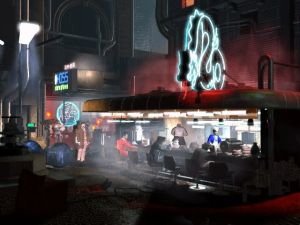 |
Character integration was one of the bigger technological challenges for the Blade Runner team |
David: It was definitely a challenging project at times. You can imagine with the character tech we had that there was certainly a lot of problems trying to get the characters to look good, and we never really hit that right. I think if there's a flaw that you can see in the game, it's that the slice model technology we were using for the characters doesn't really hold up to the scenes around them. That's certainly really noticable today; that's the area where the game has aged not particularly well.
Just the sheer quantity of art, and the pipeline for that, and the number of artists that had to work on all those scenes, and try to get them right, and not only get them right, but playable... that was certainly a challenge!
I think there's always a little bit of pressure to how much is this an interactive movie vs. a game, and that was certainly a struggle that I struggled with a lot. There were a couple of efforts fairly late in the project that we undertook to try to get a little more gameplay in there, and I think some of them worked less well than others. The Voight-Kampff nod that we had in the game, that came in very late, and was not used as frequently or as well as I hoped it would be. So, you know, we certainly hit some challenges along the way, but we did manage to pull it all together at the end.
Ingmar: I could mention lots of things I particularly liked about the game. One aspect is the real-time element. How much of a struggle was it for you as a designer to have this feature in the game?
David: It definitely wasn't easy. Partly because the game wasn't a shooter, and a lot of people who played adventure games at the time weren't quite used to that mode of play. I don't think the game would have worked if every part of the game had felt like you're pressured or in a rush as you are in a shooter. But I think having these few brief cinematic moments was kind of true to the movie. You know, there's a lot of times in the movie where Deckard is kind of exploring and investigating, and taking his time, and then there are these bursts of action. It felt true to the movie to have these moments in the game, and it felt true to the kind of game we wanted to make. It didn't seem to make sense to us to have the player completely be in control of all the action; that didn't feel like Blade Runner to us. That's why we pushed to get these things in.
Ingmar: What other elements of the game are you particularly proud of, and what could have worked better from your point of view?
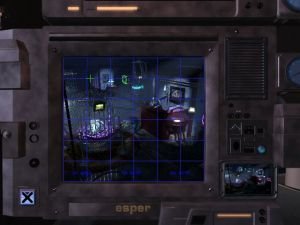 |
David believes the ESPER image sequences are one of the game's best features, if a little underused |
David: I'm certainly super-happy with ESPER – the photograph investigation sections of the game. I think the way that worked was great. Actually, I wish we could have done even more of that, but we had at least two or three really good scenes there that you could actually find a lot of little things in. I think that was very reminiscent of the movie, and at the same time we really used it to its fullest potential, and I'm super proud of that.
I was, at the end of day, really happy with the script overall. I think it was kind of tough to fold in a few of the stories, and I think that if I have some disappointments, it's probably that the back-third of the game – leading up to the conclusion – has a little bit of content in there that feels like filler to me. Some of the stuff in the sewers didn't quite capture some of the strengths of the first couple acts of the game. But I think it ends fairly strongly, and overall it's a game that I'm really proud of. I'm still friends with a lot of the guys that worked on it, and it was a great experience.
Ingmar: The game sold more than a million copies, which was a lot at the time. Unfortunately, though, you never got to do a second game. Have there been ideas, nevertheless, about what a second game could have been like?
David: You know, we had started to kick around some concepts of that. It was a long development process, and one that was definitely fairly intense, and I think the team was ready for a break after that. We did kick around some ideas, but the Blade Runner Partnership at the time didn't want to pursue another one, and neither did the studio. I think, frankly, a lot of the team wanted to move on to some other stuff too. I think it would have been hard to pick up where the first one ended, because we didn't know how it ended for an individual player. The trouble with sequels for games with multiple endings is that you have to pick a canon ending, and I think that would not have been great. I guess, in retrospect, I'm pretty happy it was a one-off as I think we did justice to the movie, and the world, and I hope that people think of it that way.
Ingmar: A few years back, Westwood's co-founder Louis Castle stated that the original source code and assets were lost, making a re-release or a remastered HD version impossible. It's quite a shame that players don't have a chance to buy some sort of digital version of this game.
David: Yeah, that does make me sad. A bunch of us have talked about that over the years. I left Westwood before they were shut down, and acquired, so I don't know exactly the sequence of events. I imagine somewhere on a stack of old CDs there's a bunch of source code. As far as I know, nobody from the team or the studio knows where it is, and I've heard Louis say that before, and I've heard a few of our other team members say, “oh, darn it! That's a shame!” I mean, nowadays with things like Steam, it would be lovely to see that game re-released, but it looks like it's not to be.
Ingmar: That's also a pity as I think – apart from some visual aspects – the game has aged very well.
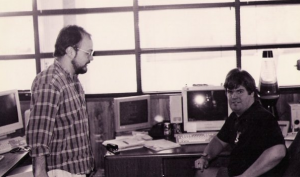 |
David (left) at Westwood with Blade Runner's lead programmer Michael Legg |
David: Thanks! The interesting thing about that is that if we did have the code for it, and somebody were able to do a remaster, you could crank up the technology for the character models. It actually supported a much higher resolution, and a higher fidelity look. With today's computers, you could pretty easily crank that tech up to take the original source assets, which were much more detailed, and really make the characters look as if they fit into the scenes a lot better. I think that would be something that would be great to see in a remaster as, really, the only limits at the time were that we were trying to make it meet minimum specs, and run that technology. So that would be interesting, but, oh well... (laughs)
Ingmar: I went to a presentation of Quantic Dream's upcoming game Detroit: Become Human last year, and this might be completely coincidental, but what I saw strongly reminded me of your Blade Runner game. Not just in terms of the setting and the atmosphere, but also in terms of some of the design ideas in there. Whether that was coincidence or not, can you think of any games that picked up on elements Westwood Studios tried out in Blade Runner?
David: Boy, I don't want to say that we were influential because I don't know that we were particularly influential. You mentioned Quantic Dream; I think I have seen some things in the stuff that they're trying to do that at least farms the same ground. A game that, I think, kind of tried to approach the same space we did, and I'd argue that did it significantly better than we did, was the first Deus Ex game. By using a shooter, and kind of focusing their gameplay around that, they were able to do some stuff that we weren't really able to that made that game work very well, and of course they've had enormous success. I do think they farm that same territory of players' actions having legit consequences. That's certainly something that we're seeing a lot in open-world games today, and it has become kind of an industry staple now, but, you know, I think we hardly started that; Deus Ex was far more influential on that space than we were. But I'm glad to see that continuing; whenever in a game the players feel like their actions have legit consequences, that's always a win, no matter what genre you're in.
Ingmar: This actually reminds me of another thing I really liked about Blade Runner. Many games literally make you shoot hundreds or thousands of people. Blade Runner, on the other hand, was one of the few games that made me feel bad, and to a certain extent guilty, whenever I shot someone.
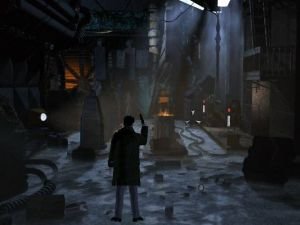 |
Though McCoy carries a gun, it is rarely (if ever) actually a requirement to kill anyone |
David: (laughs) That's good to hear! That was partly the intent. I believe, if I remember right, you could get through the game without shooting anyone.
Ingmar: I don't remember that path, but that's very well possible. Perhaps I just should have tried not to shoot at people. (both laugh)
David: I think there was a path; it was at least something we tried to do anyway.
Ingmar: Blade Runner had a strong emphasis on storytelling. What recent and/or current games have impressed you because of their methods of storytelling?
David: Hmm... there's a lot of games that do pretty interesting stuff with storytelling in totally different ways. INSIDE, if you played that, does some very good stuff with just environmental kind of platforming mechanics in a very tight, confined space. On the other end of the spectrum, I think that The Witcher 3 and a few RPGs have really shown that you can do some pretty sophisticated stories within traditional game structures, and give the players some freedom of action, and find some clever ways to do that even within a giant RPG. I think that people are knocking it out of the park these days. I mean, every year I'm amazed at what the industry comes up with; it's always something new and fresh, and it's exciting to see what people are doing.
Ingmar: And there's a lot of stuff out there.
David: There is a lot of stuff out there! It's definitely a wonderful time to be a gamer; you're never short of anything to play, and my backlog grows all the time.
Ingmar: After having worked on Blade Runner, if you could choose another popular franchise – whether it's based on a movie, a TV show, or a series of books – and turn it into a game, what franchise, and what type of game would it be?
David: Oh, wow! Huh, that's interesting! I'm a big fan of Iain Banks' Culture novels. I think it would be interesting to play around with a sort of sweeping sci-fi space opera epic in that kind of space. In terms of genre, I'm not quite sure what you could do with it. I think that a lot of people might say, “let's make a giant Mass Effect-styled RPG out of it,” but it might be interesting to do something a little quieter, and explore a story-based game in the corner of that universe. But, boy, that's a very open-ended question. There are lots of games I still want to make! (both laugh)
Ingmar: You have worked on many well-known games throughout the years. Which ones – Blade Runner aside – are you especially proud of?
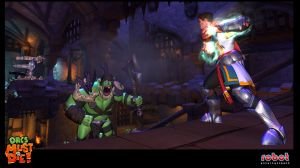 |
Never mind retiring replicants, Orcs Must Die!
|
David: In my recent history – and this is funny because it's completely the opposite of Blade Runner; it's not story-based at all, other than a very light story we added in – but I was really, really happy with the work on the first Orcs Must Die! game. It was just kind of a fun little third-person tower defense game. We had a very tight design on that, it was a fun project to work on, it went very quickly and efficiently, and we made a very satisfying game at the end of it, so I was very happy with it.
Ingmar: As the end of our interview draws close, please give us an idea of your current activities.
David: I have actually not been a designer for a few years; I've moved into production. I'm working at a company called Playful now. Playful is based in McKinney, Texas. I've been a producer on an Early Access game for the last couple of years called Creativerse. It's an open-world voxel game, sort of in the Minecraft space. We just came out of Early Access a little while ago, and the studio also has a couple of other projects in development. It's a good time to be in games still! (laughs)
Ingmar: I really can't let you go without hearing your thoughts on the new Blade Runner movie coming out in October.
David: (laughs) I think it looks pretty amazing. I'm glad they didn't try to farm the space that was walked by the book sequels, which I was not so much a fan of. There were a couple of book sequels that were not quite in the right vein in my opinion. I felt like the trailer maybe gave away a little too much, but we'll see where they'll go with it. I'm certainly excited to go to the theatre, get a big bunch of popcorn, and watch it!
Ingmar: David, thank you very much for your time. It has been a pleasure to discuss all-things-Blade Runner with you!
David: Absolutely! The pleasure is all mine, thank you very much, sir!



